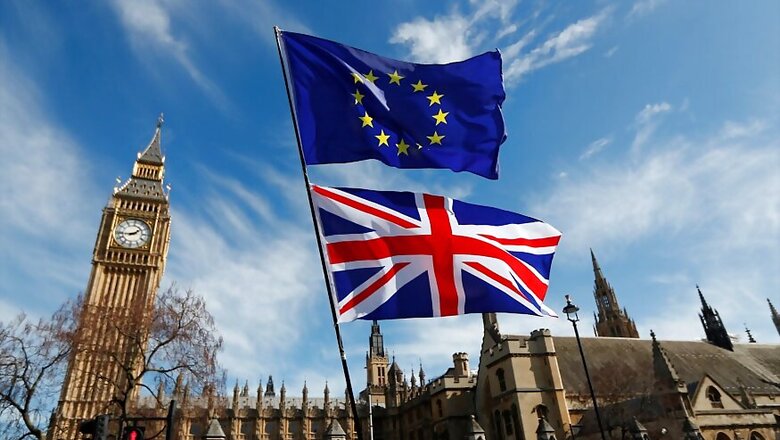
views
Tallinn: Only “miracles” can move Brexit talks far enough to fulfil Britain's hopes of launching discussions next month on its future ties with the European Union, the head of the European Commission said on Friday.
UK Prime Minister Theresa May had been hoping to use an informal EU meeting in the Estonian capital Tallinn to harness what she describes as renewed goodwill over Brexit to push the talks beyond the terms of the divorce, now just 18 months away.
Britain had aimed to make a breakthrough at a summit in Brussels on October 19-20. Two years have been set aside for the Brexit talks and Britain risks crashing out of the 28-state bloc on March 29, 2019, without a deal on future trade terms.
But Jean-Claude Juncker, president of the EU executive and long a bogeyman for some in Britain's eurosceptic press, said the first stage of talks on the rights of expatriates, the UK border with EU member Ireland and the financial settlement when Britain leaves had not gone far enough.
"By the end of October, we will not have sufficient progress," Juncker told reporters in Tallinn, a day after his chief negotiator ended the last round of Brexit talks.
"At the end of this week, I am saying that there will be no sufficient progress from now until October unless miracles will happen."
His words were echoed by other leaders. Dutch Prime Minister Mark Rutte said both sides would need "a small miracle" to make the required progress before the summit. Irish leader Leo Varadkar said it was "still very evident that there's more work to be done".
Their views will be a blow for May, who wants to move quickly on to discussion of the future trade relationship and a transitional arrangement — part of the deal Britain says is needed before any kind of financial settlement can be agreed.
In Tallinn, May sidestepped questions over whether she was confident of the October deadline.
NEW TONE
After three months of talks, which have become bogged down in a spat over the divorce bill, the British prime minister tried to reset the tone with a speech a week ago in Florence.
She had hoped to speak directly to EU leaders and reassure them that Britain was not picking unnecessary fights, going so far as to make concessions on the future role of the European Court of Justice and on the Brexit bill.
"I made that speech to give momentum to the talks and I think we have seen that being shown in the talks that have taken place this week, and further progress has been made," May said early on Friday.
Pressing her case, she met German Chancellor Angela Merkel on the sidelines of the Tallinn summit and repeated her pledge for Britain to be "the strongest friend and partner to the EU" after Brexit, her spokeswoman said.
Merkel said there had been progress, but that there was also a lot of work to do before October. "Altogether it was a very constructive talk," Merkel told a news conference at the end of the summit. "I think that the Florence speech helped to bring a new dynamic into the negotiation process."
May also held talks with Polish Prime Minister Beata Szydlo, who is concerned about the 800,000 Poles living in Britain. Both agreed on "the importance of reaching an early settlement on citizens' rights", May's spokeswoman said.
But a Spanish government official was blunt. "We don't negotiate with speeches, we negotiate with documents on the table," he said, describing the two sides as "nowhere near" agreement on the Northern Ireland border and the divorce bill.
On citizens' rights, considered by London one of the easier issues to settle, the official said Britain and the EU were getting close, but progress was "not sufficient yet".
In a morning visit to Estonia's Tapa military base, where 800 British troops are deployed as part of NATO's efforts to defend against a newly assertive Russia, May said Britain was "unconditionally committed" to protecting Europe after Brexit.
By focusing on defence, May wants to show that Britain has something to offer its European neighbours. She will say she is ready to share British expertise, including through the National Cyber Security Centre (NCSC), to help EU nations build up their own cybersecurity capability.
That, she hopes, could bolster her argument on the Brexit talks, and coax the EU into making concessions.




















Comments
0 comment